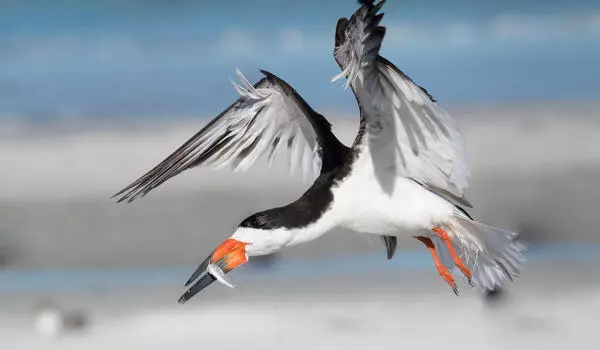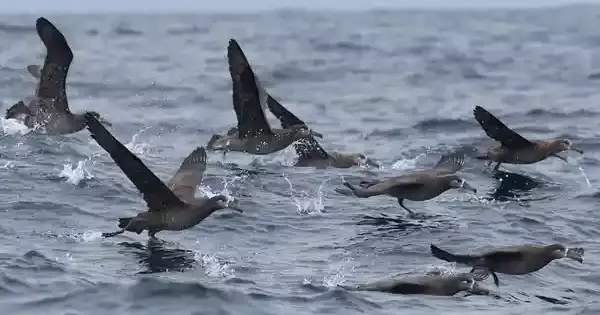According to a new study, seabirds are finding it more difficult to catch fish because their underwater visibility is being hampered by increasingly cloudy water, which is being caused in part by the climate crisis. Scientists from the University College Cork (UCC) and others attached tiny trackers to the feathers of the seabird Manx shearwater (Puffinus puffinus) in Little Saltee, a small island off the coast of Ireland, for the study.
Researchers at University College Cork (UCC) discovered that cloudier waters, caused in part by climate change, make it more difficult for seabirds to catch fish. They investigated the diving habits of black and white Manx shearwater birds in relation to local environmental factors such as cloud cover and water clarity.
The researchers attached tiny trackers to the feathers of Manx shearwaters on Little Saltee, a small island off the coast of Ireland. The researchers wanted to know how underwater visibility affects seabirds’ ability to forage for fish and other prey. Their findings were published in Proceedings of the Royal Society B. It is the first study to look at how ocean clarity affects seabird diving abilities.
Our findings support the idea that the birds required enough sunlight to forage at depth. While this study focused on a single seabird. The findings can be applied to other animals. Many visually-dependent predators may struggle to find food as human activity continues to make the oceans murkier.
Jamie Darby
The oceans are becoming cloudier as a result of climate change
“The chemical and physical properties of the planet’s oceans are changing at an unnatural rate, bringing challenges for marine life,” said Jamie Darby, a marine ecologist in the School of Biological Environmental and Earth Sciences and the MaREI centre at UCC and lead author of the study. One consequence of climate change is that large areas of our oceans are becoming cloudier.”
Darby and the research team investigated the diving patterns of the black and white Manx shearwaters in relation to local environmental conditions like cloud cover and water clarity. Over 5000 different dives were recorded and using publicly available databases, and a range of relevant information about weather patterns and ocean conditions were amassed.

Struggling to find food
Over 5,000 different dives were recorded, and data on a variety of factors such as weather patterns and ocean conditions such as water turbidity, cloud cover, and solar angle were collected using publicly available databases.
The study discovered that when sunlight could penetrate deeper underwater, the birds dived deeper, implying that visibility is critical to their ability to dive for food. When the sun was more than 6 degrees below the horizon, less than 1% of the bird’s dives occurred. Based on this observation, scientists concluded that the dives were preceded by the birds’ visual detection of either prey or indicators of prey, such as other predators.
The study discovered that when sunlight could penetrate deeper underwater, the birds dived deeper, implying that visibility is critical to their ability to dive for food. This discovery is significant because it implies that seabirds will have to overcome this challenge as the planet warms and the ocean becomes cloudier.
“Our findings support the idea that the birds required enough sunlight to forage at depth. While this study focused on a single seabird. The findings can be applied to other animals. Many visually-dependent predators may struggle to find food as human activity continues to make the oceans murkier” Jamie Darby stated
















